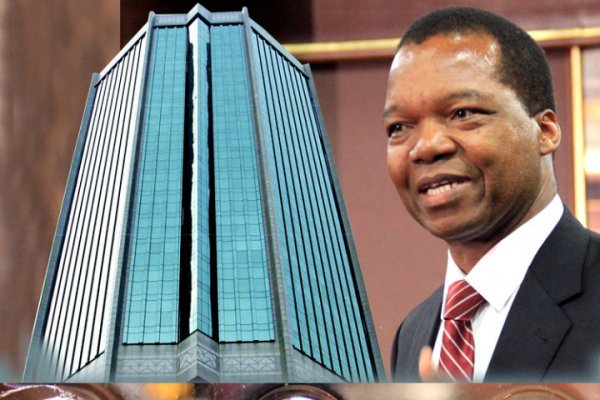Source: Zim urged to adopt currency board – NewsDay Zimbabwe March 4, 2019
BY TATIRA ZWINOIRA
ZIMBABWE should introduce an independent currency board which would stop the Reserve Bank of Zimbabwe (RBZ) from controlling the foreign currency exchange rate, an industry expert has said.
In a recent opinion piece in American magazine, Forbes, financial expert Steve Hanke said a currency board would help the country be “open for business”.
“That would make Zimbabwe’s currency a clone of the US dollar, or some other suitable anchor, such as gold. A currency board would mandate that exchange controls be thrown in the dustbin. Free convertibility would reign, and so would low inflation rates and higher asset valuations. The ‘open for business’ sign would be the real deal,” he said.
“President Emmerson Mnangagwa has proclaimed that Zimbabwe is ‘open for business’. This refrain rings hollow in the face of Zimbabwe’s exchange controls and its new currency, the ZWR [real time gross settlement] dollar.”
Hanke said imposing a managed floating rate of ZWR 2,5 to the United States dollar, which was different from the parallel market and the Old Mutual implied rates, was driving black market premiums.
According to Investopedia, in a currency board system, the management of the exchange rate and money supply is taken away from the central bank and given to a monetary authority that makes decisions about the valuation of a nation’s currency.
Specifically, this has to do with pegging the exchange rate of the local currency to a foreign currency with an equal amount of what is held in reserves.
“Often, this monetary authority has express instructions to back all units of domestic currency in circulation with foreign currency. In this way, a currency board operates not unlike the gold standard. The currency board then allows for the unlimited exchange of the local, pegged currency for the foreign currency,” Investopedia said.
“Unlike a conventional central bank, though, which can print money at will, a currency board issues domestic currency, putting additional units into circulation, only when it has the foreign-exchange rates to back it.”
Investopedia further states that in such conditions, a currency board can only earn the interest that is gained on the foreign reserves themselves, so those rates end up mimicking the prevailing rates in the foreign currency.
Hanke said Zimbabwe had imposed a plethora of exchange and capital controls on its citizens.
“Under these exchange controls, private individuals, traders, and companies must seek permission from the government to buy, sell, and hold foreign currencies,” he said.
“So, neither the old Zollar nor the new ZWR dollar is freely convertible into a foreign currency. In consequence, a black market (read: free market) exists. Indeed, whenever there are exchange controls and restrictions on free convertibility, black markets always appear.”
This is not the first time that such a system, akin to the currency board, has been proposed.
In November 2018, local economist Ashok Chakravarti proposed a hybrid foreign currency management system or the creation of a long maturity US dollar Brady type bond to preserve savings.
This would involve liberalising interbank foreign exchange market, where exporters, holders of foreign exchange and diasporans would freely sell their foreign exchange to importers.
Newer Post
Botswana Denies Loaning Zimbabwe $600M Older Post
Our Ponzi Country – Zimbabwe Vigil Diary 
COMMENTS